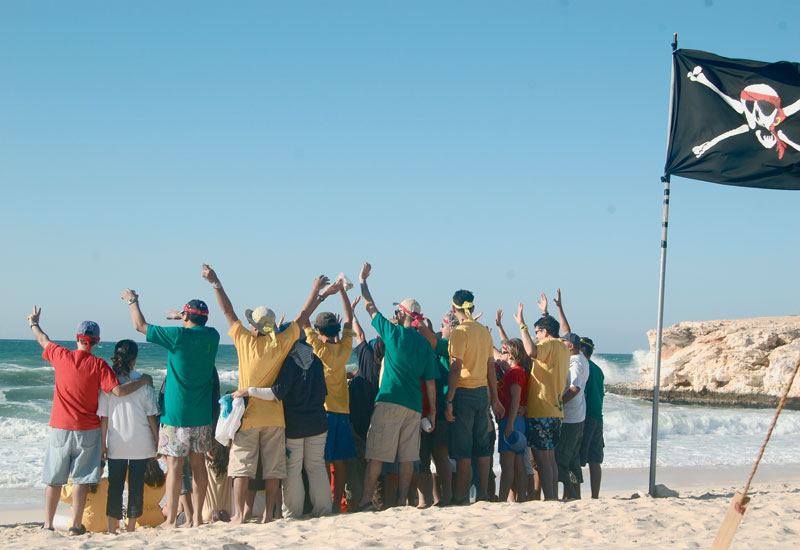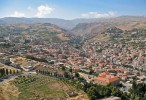While business travel has been as equally hard hit as leisure by the global downturn, the demand for corporate events, meetings and incentives is not expected to evaporate, and the sector provides opportunities for inbound and outbound travel for the Middle East as Kathi Everden discovered
According to the Middle East Meetings Industry Research Report, published by GIBTM in March, the sector is holding up relatively well compared to other regions, with 37% of buyers expecting an increase in the number of events they hold in 2009, although this rise will be offset by reductions in budgets, delegates and event duration.
On the ground here, major players are cautiously optimistic with Dnata World of Events reporting an increase in enquiries about incentive programmes from local clients: “We have seen a new trend emerging in clients’ expectations of incentive programmes,” said manager Shelly Page.
“Increasingly, companies are looking for a mix of business and leisure related activities, such as team building and educational seminars combined with dinners and sightseeing — whereas these might have been managed separately in the past, they are now pooled together and delivered as one programme.”
Dubai-based Siren Consulting, which works with both regional and overseas clients to organise events throughout the Middle East, is seeing steady business, but on a much more last-minute basis, according to events director Fiona Swaffield.
“It seems companies are realising that the situation is not quite as bad as they thought it would be — but we are given shorter lead times, more emphasis on ROI and a demand for creativity as corporates move away from stereotypical cocktail reception events and boardroom meetings.”

Advertisement
Executive retreats at some of the small luxury resorts in the region such as Bab Al Shams; family driven programmes, and a rise in demand for destinations outside Dubai are other trends, said Swaffield.
“Corporate events and launches might stay in Dubai, but inbound business is asking for quotes from other cities, and both Oman and Jordan are becoming very popular, while Egypt is offering great hotel deals just now.”
The typical four-day incentive popularised in Dubai is the sector most impacted by economic woes overseas, and operators such as Arabian Adventures are looking to introduce new programmes to reinvent this wheel.
“It is not just the downturn, but people are now asking for more experiential programmes, where they can meet local people, contribute to the community or the environment,” said svp Frederic Bardin. “We are looking at new ideas, whether it is planting trees, learning Arabic cooking or understanding Islam, and also interacting with local initiatives such as the Emirates Foundation.”
Bardin said the number of events and requests for future business were down by some 15% to 20%, but the sector was not dead in the water: “We are seeing more regional market incentives and this is slowly developing, while some corporates are still doing the full thing — air-conditioned meetings in the desert, gold leaf in the champagne, 10 course dinners and limo transfers.
“Overall, more than 15% of clients request something different, away from the hotel meeting and dune-dinner formula.”
Dnata’s Page also stressed the need for creativity: “A significant change we have seen is in the way our clients want their guests to take in local sights or experience gala dinners — they expect to see these activities delivered in a more creative way, both in terms of execution and the budget.”
London calling
With preparations for the 2012 Olympics in full swing and the fall in the value of Sterling, London represents a good value option for longer-haul events, and a swathe of new and original venues are on the menu, according to sales and event solutions manager for Visit London, Zanine Adams.
“For traditional attractions, we can offer private tours of the Houses of Parliament or the Crown Jewels at the Tower of London; receptions at a gallery or in the gardens at the V&A Museum; visits to the Tiffany Collection at Somerset House or a pod on the London Eye with champagne cocktails,” Adams said.
“There are revamped hotels such as the Savoy and the Grosvenor House now operated as a JW Marriott, while another attraction is a celebrity chef’s table at venues such as Claridge’s, or a reception with after-hours shopping at Liberty’s.”
Other new venues with possible attractions for a Middle East group are The Wonder Rooms at Selfridges, The Deck at the National Theatre with Thames views; the black and white design Altitude in Westminster with 360-degree views and dining, meeting and breakout facilities; and the new Church House Conference Centre by Westminster Abbey with 19 rooms including the Assembly Hall with a glass dome.
CONTACT: www.visitlondon.com









 Search our database of more than 2,700 industry companies
Search our database of more than 2,700 industry companies









